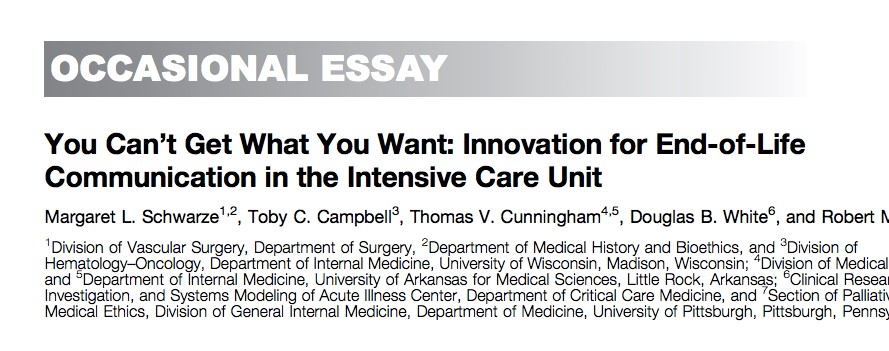“Living wills and advance care planning are wrong.” What?
Yeah. I thought that, too. Who could be against living wills? How could planning ahead for possible future medical decisions be wrong? These doubts about the value of living wills came from the GeriPal podcast, “Advance Care Planning is Wrong: Podcast with Sean Morrison.”
Part of Morrison’s beef with these well-established practices for end-of-life care is the amount of research dollars continuing to be poured into “improving” them. Dr. Morrison and his hosts on the podcast are practicing physicians who also conduct research into how to improve medical care at the end of life. He would prefer that some of those limited research funds be channeled into improving other aspects of the end-of-life medical experience.
A healthcare proxy is a good thing.
He does say naming a “healthcare proxy” (a person you designate to speak for you if you can’t speak for yourself) is a good thing. But even that is often fraught with difficulties, like people never talking to their proxy about what their wishes are for things like life-prolonging procedures. Or, worse yet, not even telling the person they are named in their documents.
What could be wrong with a living will, you ask? Living wills are often prepared years before they are needed to help guide a medical treatment decision. We are not the same person we were twenty years ago when we wrote down our wishes. We may have changed our views.
I once had a nursing home patient who had a feeding tube. His eyes could track you around the room, but he could not talk. He soon became nonresponsive and his body began to swell and retain fluids. His wife said to me, in passing, “I guess it is time to get out his living will.” YES, please.
When he was healthy, he always told his wife, “If I am dying, I don’t want anything artificial keeping me alive.” Yet when he was faced with the possibility of dying, he said “yes” to the feeding tube. There is nothing wrong with his decision. If you have the capacity, you have every right to change your mind.
Update your family in light of your current values
The doctors on the podcast found that a decision made years earlier might be different when confronted with a specific medical situation today. What they found more helpful in the medical record is a note about what the patient expressed in conversation with their physician. What was the patient’s motivation for saying, “I don’t want life-prolonging procedures?” Things like “I value quality of life over quantity” or “I just want to see my daughter married in June.” What these docs are looking for is what values their patients have.
My takeaway from the podcast: Have conversations with my family revisiting my wishes about the end of my life. Update them in light of my current values and my current medical prognosis. COVID-19 is a perfect example of why a living will prepared years before might not help. I have changed my instructions to my wife twice in the last several months based on new research regarding the progression of the disease.
So, you might have to ruin another Thanksgiving dinner. I can hear your family, “Oh, Mom. Do we have to talk about that again this year?” Soldier on. Keep updating your feelings and wishes.


